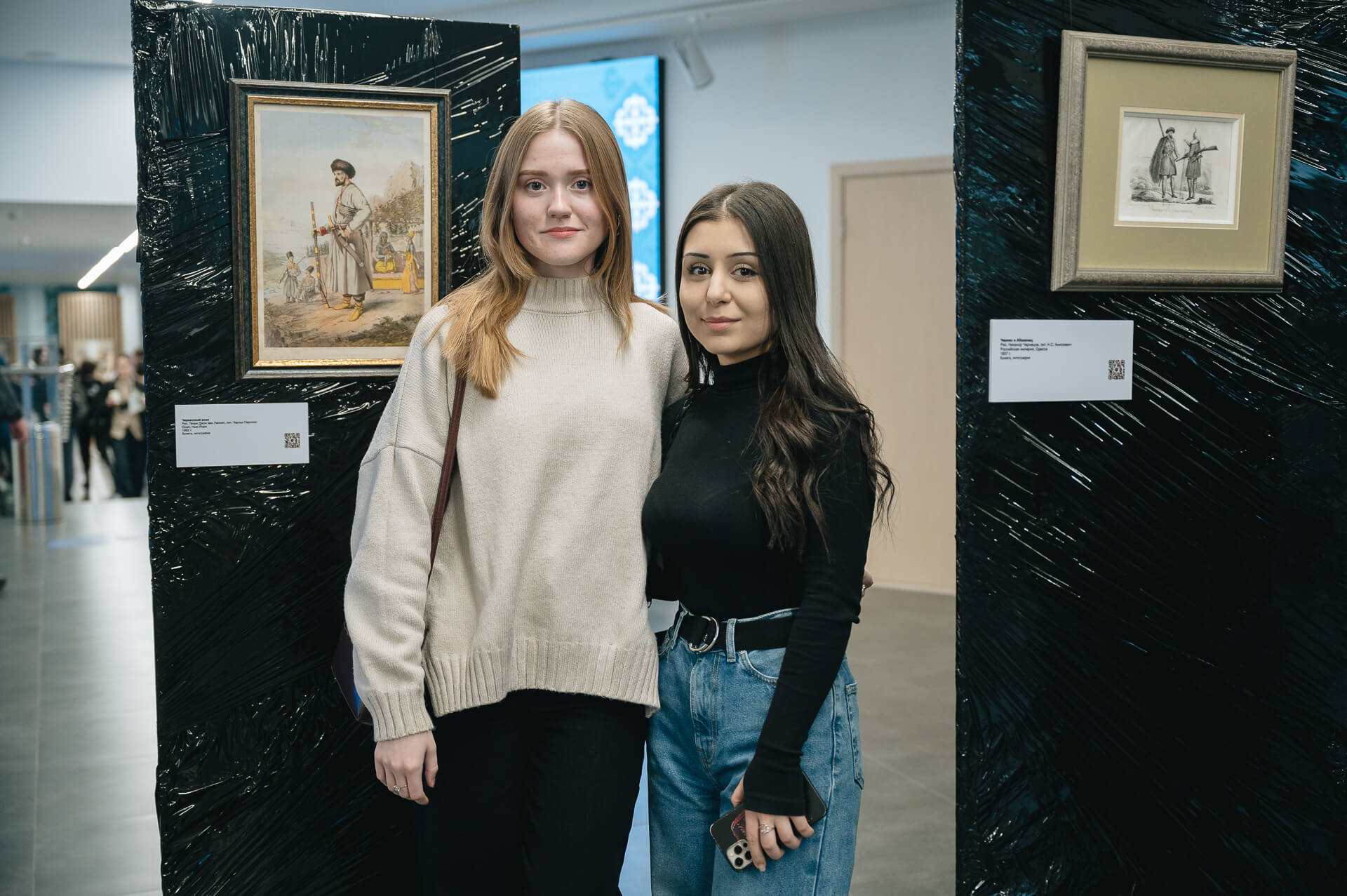‘Cultural Exchange is an Important Element of Education’
On October 9, the TAULU&ADIGI UNITY DAY festival was held at HSE University’s Cultural Centre. It brought together students from different universities interested in the life of Caucasian peoples. Guests immersed themselves in the history and culture of different ethnic groups and tried national delicacies. The festival was organised by the university’s TAULU&ADIGI student community, which represents Karachai, Adyghe, and Balkar students at HSE University.
An art exhibition, a concert, a lecture, and national dances— the festival programme included activities to suit every taste.
Omar Zaur, a student of the Master’s programme ‘Muslim Worlds in Russia’ at HSE University, told guests about the cultural heritage of Caucasian muhajirs (Muslims who moved from Mecca to Medina in 622, during the time of Prophet Muhammad) in the Middle East. Zak Kaghado, an American artist of Circassian origin, held an open talk where participants learned more about contemporary art in Caucasian societies.
A large-scale exhibition of ancient prints and original paintings by such artists as Zak Kaghado, Murat Anaev, Keram Kubanov, Aslan Orazaev, Kerim Akkizov, Moussa and Artur Mizhev, and many others was held in the hall of Cultural Centre.
In the evening, a concert of dance and music groups took place in the Centre's Great Hall. The programme featured performances from the ‘Assa’ and ‘Adygi’ ensembles, singer Tengiz Gabaev, and accordion and dhol (Caucasian drum) players.

Alibek Adzhiev, first-year master’s student at HSE University and co-organiser of the event, is interested in the culture of various ethnic groups. ‘I’m from the Karachay-Cherkess Republic,’ he said. ‘When I came to HSE University, I met other people from my ethnic community and fraternity here. They invited me to take part and help organise the festival, and I happily agreed. Today, you can connect with the cultures of several quite different ethnic groups at once—this is a new experience for me. I think this kind of cultural exchange is very important. I would even say that it is an important element of education.’

The grandparents of Ariana Zakiyan, third-year student of Moscow State Linguistic University, live in Kabardino-Balkaria. ‘I spend every summer with them. This culture is in my blood, and I’m interested in everything related to it,’ she explained. Ariana’s friend and classmate Olga Konovalova came to the festival with her. ‘We want to see the dancing. Of course, I’m interested in studying different cultures—I need to broaden my horizons,’ Olga said.

Agnessa Basayeva, fourth-year student at Plekhanov Russian University of Economics, also decided to attend the event on the recommendation of a friend. ‘We would like to go to the musical part,’ said Agnessa. ‘And listen to the lecture, of course. I am from North Ossetia myself, so the issue of recognising the cultural diversity of Russia and preserving the traditions of other peoples is very relevant to me.’

Adelia Alburina, third-year student at HSE University, is originally from Kazakhstan. ‘The Karachay, Adyghe, and Balkar peoples are also Turkic peoples. I’m interested in their history, and our languages are similar,’ Adelia said.

Soslan Kochiev, second-year master’s student at HSE University, is Ossetian, and he says that festivals such as TAULU&ADIGI UNITY DAY are particularly interesting to him. ‘I’m generally interested in the ethnic diversity of Russia,’ he added. ‘Today I saw the paintings exhibited in the gallery, engravings depicting Caucasians made by different artists.’

